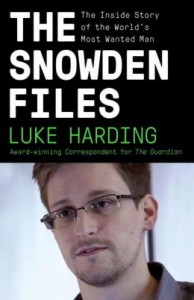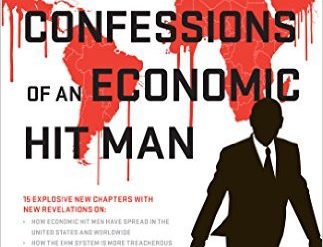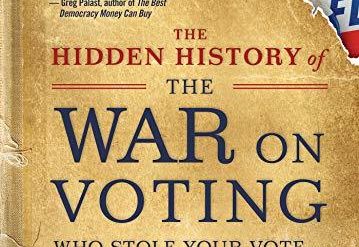
When the news broke late in May 2013 about a junior contract employee of the National Security Agency (NSA) who had fled to Hong Kong with a collection of top secret documents about US intelligence practices in his possession, I didn’t pay a great deal of attention. Nor did I think much of it when the first stories surfaced in the Guardian and the Washington Post that were based on the purloined documents. The headlines merely seemed to confirm what we in the public had learned from previous disclosures about widespread surveillance of US citizens by the NSA.
Estimated reading time: 5 minutes
Then subsequent articles began making clear the previously unknown scope, depth, and character of the NSA’s prodigious abilities to scoop up unprecedented volumes of communications data all across the globe. I was shocked to learn that the US government had bugged the personal cellphones of Angela Merkel, Enrique Pena Nieto, Dilma Roussef, and dozens of other world leaders. My eyes bugged out when I discovered that the NSA was stealing all the data that coursed through the cables used by Google, Yahoo!, Microsoft, and other Internet companies. And I did a double-take when I learned that the NSA wasn’t alone in this global data-mining endeavor — that Britain’s GCHQ and their counterpart agencies in Canada, Australia, and New Zealand were all in business together under an agreement known as “Five Eyes.”
The Snowden Files: The Inside Story of the World’s Most Wanted Man by Luke Harding ★★★★★
Enter Edward Snowden
Now, having read Luke Harding’s terrific new book, The Snowden Files, I know how much worse the problem is.
As Harding writes, “[p]aradoxically, in its quest to make Americans more secure, the NSA has made American communications less secure; it has undermined the safety of the entire internet” by inserting a “back door” into the encryption software used to protect personal and corporate data such as health records and financial transactions.
Clearly, these developments aren’t simply isolated events in a tale of a bureaucracy exceeding its brief (as bureaucracies are wont to do). In a larger sense, what Edward Snowden brought to light is that the governments of two of the world’s leading democracies acted more like dictatorships. Rather than clamp down on the rogue agencies that lied to conceal their most outrageous missteps even from senior elected officials, their leaders instead rushed to defend them to the hilt. Simultaneously, the US government used all available resources to track down Snowden and put him on trial for treason. Senior officials in the British government accused the Guardian of treason, too, and even at one point forced its staff to smash to bits the computers that were holding the files transferred from Snowden.
Treason? Really?
A revealing episode in this book about Edward Snowden
One of the most revealing episodes in this sad drama was the claim by General Keith Alexander, Director of the National Security Agency, that the wholesale data-scooping had enabled the NSA to stop 54 terrorist plots. As Harding notes, “Alexander’s deputy Chris Inglis subsequently conceded that only about a dozen of these plots had any connection to the US homeland. Then he said that just one of them might have been disrupted as a result of mass surveillance of Americans. (He was also ambiguous as to whether the plots were real ‘plots;’ some of the citations he gave had more to do with financial transactions.)”
So, a four-star US general accountable for the actions of his 40,000-person agency publicly distorted the truth — almost certainly knowing what he was doing — and got off scot-free, while the person who brought to light his agency’s illegal and unconstitutional activities was charged with treason! How can this possibly make sense in a democracy?
Yet there are even broader implications to this story.
The surveillance state and the future of democracy
Assume, for the sake of argument, that Barack Obama spoke sincerely in his 2008 campaign for the presidency when he promised to “strengthen privacy protections for the digital age and … harness the power of technology to hold government and business accountable for violations of personal privacy.”
Contrast that with the president’s remarks in January 2014 on the subject of government surveillance, when he responded in a major address to the publication of the Snowden documents detailing massive privacy abuses by the NSA. He heralded a series of largely cosmetic changes in procedure but insisted “the men and women of the intelligence community, including the NSA, consistently follow protocols designed to protect the privacy of ordinary people.”
In other words, candidate Obama pledged to turn back some of the egregious abuses of Americans’ civil liberties introduced by the Bush Administration — while president Obama unapologetically defended them, just as he had in 2010 by signing the renewal of the notorious Patriot Act.
The new reality in American government
To my mind, this blatant turnaround reflects two major aspects of the new reality that now characterizes American government: first, that the president is not an all-powerful chief executive but must routinely accept as fait accompli much that has become established practice in the federal government, no matter how he might feel about it; and, second, that the intelligence establishment, lavished with unlimited funds and highly permissive laws by decades of protective presidents and compliant congresses, has grown out of control.
What does that say about the future of democracy in America?
Think about it. Read The Snowden Files — if only because Luke Harding is an excellent writer. This book reads more like a thriller than a work of nonfiction, and it’s clearly based on extraordinary access to many of the principals in the story.
And if you want to delve more deeply into the present-day reality of the US intelligence establishment, read Top-Secret America by Dana Priest and William M. Arkin, and The Way of the Knife by Mark Mazzetti. Taken together, these three books paint a chilling picture of the intelligence establishment that has increasingly dominated America’s role in the world and, more recently, limited the scope of our freedom at home.
For related reading
This is one of the many good nonfiction books about national security.
Like to read books about politics and current affairs? Check out Top 10 nonfiction books about politics.
If you enjoy reading nonfiction in general, you might also enjoy:
- Science explained in 10 excellent popular books
- 10 great biographies
- My 10 favorite books about business history
And you can always find my most popular reviews, and the most recent ones, on the Home Page.



























